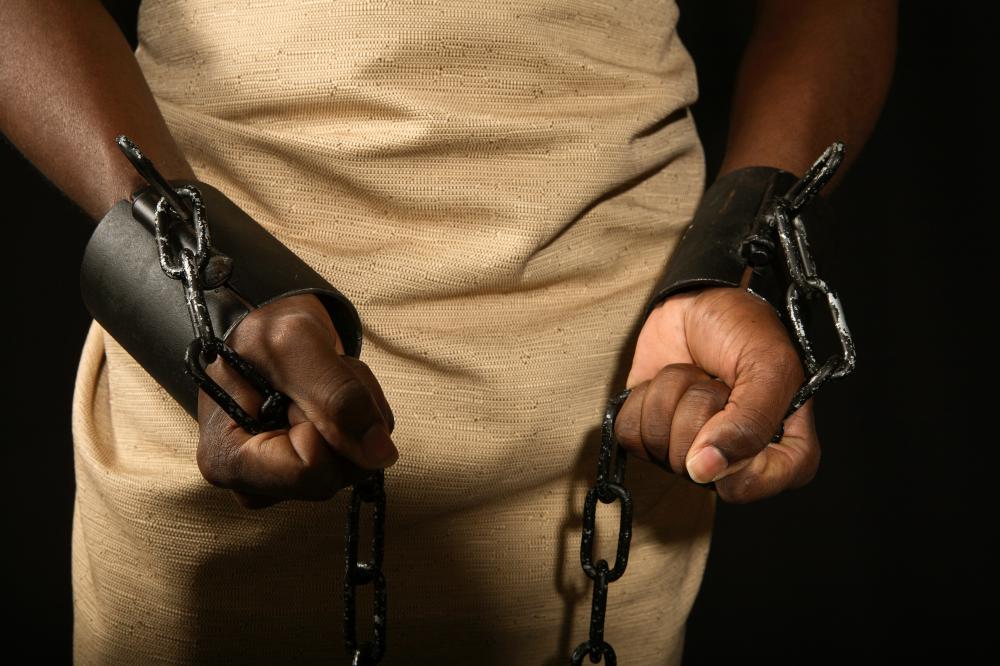At WiseGEEK, we're committed to delivering accurate, trustworthy information. Our expert-authored content is rigorously fact-checked and sourced from credible authorities. Discover how we uphold the highest standards in providing you with reliable knowledge.
What Have Been the Most Important Supreme Court Cases?
The United States Supreme Court began in 1790 and has heard many cases over the years that have changed our history. It is the Supreme Court's responsibility to make sure the United States Constitution is upheld when they make their ruling. While there are hundreds of Supreme Court cases in the history books, there are only a select few that would be considered the most important by many people.
During one of the earlier Supreme Court cases in 1819, McCulloch versus Maryland, the United States Supreme Court ruled that the state government had no power over the federal government. The Supreme Court declared that having the power to tax also meant having the power to destroy. They stated that no state would ever rule the federal government.

In 1857, the earliest of the Supreme Court cases that involved race, there was a case called Dred Scott versus Sanford. Dred Scott was a slave owned by Dr. Emerson and was taken from Missouri to a free state and returned to Missouri. He sued, stating that being in a free territory granted him freedom. The Supreme Court ruled that Congress could not prohibit slavery in free territory and decided blacks were not United States citizens, could not become citizens and could not sue in court. This case prompted what later started the Civil War.

Plessy versus Ferguson, in 1896, began when a black citizen, Plessy, refused to leave a railroad car that was reserved for white passengers and was jailed for his actions. He appealed his case, protesting that the equal but separate principle was a violation of his rights under the 13th and 14th Amendments. The Supreme Court upheld the equal but separate doctrine until it was reversed in 1954.

The case of Brown versus The Board of Education of Topeka in 1954 came about when Linda Carol Brown was required to walk 21 blocks to an all black school rather than attend a school that was only four blocks from her house that was an all white school. A unanimous decision by the Supreme Court reversed the Plessy versus Ferguson decision of 1896. The Supreme Court stated that being equal but separated was not creating equality.

After Cleveland police raided a home owned by Ms. Mapp without a warrant and found obscene material, the "due process clause" protected Ms. Mapp from any improper procedures by law enforcement. In 1961, the Supreme Court ruled in the case of Mapp versus Ohio that unreasonable searches were useless unless the evidence found during these searches were excluded. It was an extension of the exclusionary rule to citizens.
In one of the Supreme Court cases involving religion, Abington School District versus Schempp in 1963, the forbiddance of building a foundation of religion in schools was established. Abington High School's normal morning exercises involved reading the Bible over the loud speaker, and the students were asked to repeat the Lord's Prayer before saluting the flag. The parents were notified that all students had the right to leave the room and not participate. The Schempp family, being a part of the Unitarian faith, said it was unconstitutional to support religion or specific denominations.
In 1963, the case of Gideon versus Wainwright began when Clarence Gideon was charged with theft and breaking and entering. He asked that an attorney be appointed for him since he could not afford one. The court denied his request, Gideon represented himself, the court found him guilty and sentenced him to five years in prison. He appealed the ruling, stating it violated his right to counsel under the 14th Amendment. The Supreme Court agreed, and he was retried with proper counsel and found not guilty.
In 1965's Griswold versus Connecticut case, Connecticut's law prohibited any form of preventing conception. When a doctor was arrested after giving a married couple information on contraception, the Supreme Court overturned the Connecticut law, stating it was an infringement upon a person's privacy. This went on to raise more questions regarding the Ninth Amendment.
In the case of Miranda versus Arizona in 1966, Ernesto Miranda was arrested and questioned for two hours before he confessed to rape and kidnapping. The Supreme Court stated that a person must be clearly informed of their rights by law before being questioned. This later became known as reading someone their "Miranda rights."
Roe versus Wade, in 1973, began after a single and pregnant women from Texas stated her rights through the 14th Amendment were being violated because of anti-abortion laws. The Supreme Court stated that Roe's right to privacy meant she was entitled to an abortion. It also stated that a person's privacy was not absolute and stated certain clauses regarding abortions.
AS FEATURED ON:
AS FEATURED ON:














Discussion Comments
Great article, thank you.
You completely missed out Marbury v. Madison (1803), which established judicial review as a power of the Supreme Court to check the powers of Congress and the President.
Though not as widely known as the cases mentioned here, it provided a precedent for the Supreme Court to overturn unconstitutional decrees and laws by the other branches of government. Without judicial review, such concepts of "separate but equal" from Plessy v. Ferguson and "right to privacy" from Roe v. Wade (among dozens of others).
This article is efficient.
Post your comments